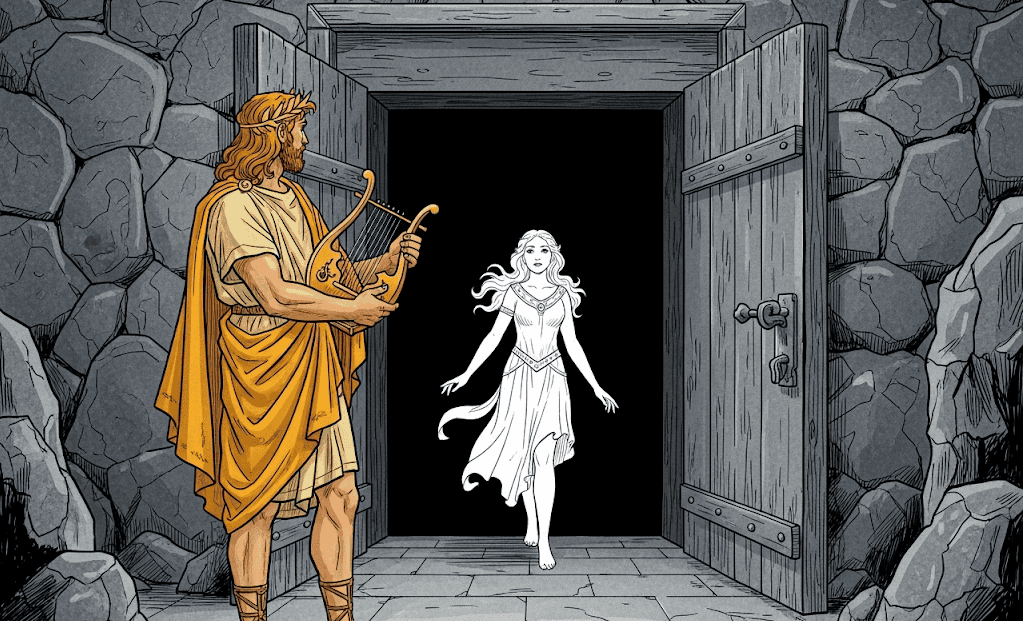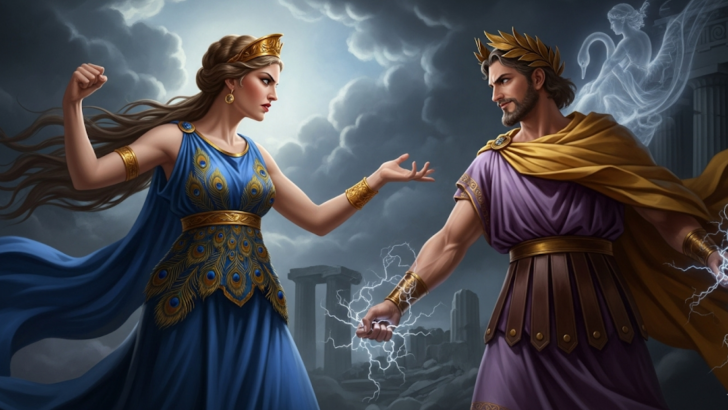Greek mythology is full of drama, passion, and divine chaos, but beneath the thunderbolts and love potions, these stories often mirror unhealthy relationship patterns we still see today.
The gods and mortals might have lived in a world of magic and monsters, but the lessons about love, jealousy, power, and control remain surprisingly human.
Let’s look at ten things these myths can teach us about toxic relationships and why some of these patterns are as old as time.
1. Jealousy Can Consume Everything

Hera, queen of the gods, is famous for her jealous rage whenever Zeus strayed, which was basically all the time.
Instead of holding him accountable, she often took her anger out on his lovers and even their children.
This shows how jealousy without trust or honest communication can poison not just two people, but everyone around them.
Relationships fueled by suspicion and revenge rarely heal because the cycle of blame just keeps growing. In real life, jealousy unchecked can make love feel more like a battlefield than a safe place.
2. Love Bombing Is Not Real Love

Zeus often pursued mortals and goddesses with overwhelming gestures that left them dazzled. Think of Europa, who he swept away across the sea disguised as a bull, or Danaë, who he visited as a shower of gold.
These flashy moves might look romantic, but in truth, they were all about control and seduction. Love bombing makes someone feel special at first, only to trap them in an unbalanced relationship later.
Real love is built on mutual respect, not magical shows of power or grandiose promises.
3. Revenge Destroys More Than It Heals

Medea’s story is one of the darkest lessons in Greek mythology. When Jason betrayed her, she didn’t just walk away.
She destroyed his new wife and even harmed her own children to make him suffer. While her pain was real, her response left destruction everywhere.
In relationships, using revenge as a way to cope with betrayal only prolongs the hurt. Instead of finding closure, it spreads misery to innocent people. The myth of Medea shows that sometimes letting go is the only true power left.
4. Power Imbalances Lead to Suffering

Hades and Persephone’s story may be painted as a romance in some versions, but at its heart, it began as an abduction.
Hades took Persephone to the underworld without her consent, forcing her into a life she never chose. This highlights how toxic relationships often involve one person making decisions for both, stripping away choice and freedom.
When one partner dominates, the other is left voiceless. A healthy relationship allows space for equal power, where no one is dragged into a life they never agreed to.
5. Infidelity Shatters Trust

Zeus’s endless affairs caused chaos across Olympus and the mortal world alike. Each fling left broken trust, angry confrontations, and ripple effects that shaped entire myths.
Infidelity might look exciting in a dramatic story, but it leaves wounds that are hard to heal. Trust once broken doesn’t magically rebuild itself.
In real life, betrayal can be just as destructive, leaving people feeling unloved, unsafe, and stuck questioning every truth they once believed. Love without loyalty is like a house built on sand.
6. Manipulation Disguised as Love

Aphrodite often used her charm and beauty not just to attract love but to manipulate others into doing her bidding. From sparking the Trojan War to meddling in the love lives of mortals, her influence wasn’t always about kindness.
This teaches us that affection used as a weapon can feel intoxicating but leaves partners trapped in a cycle of control.
Toxic relationships often involve someone twisting love into a tool for personal gain. Love should feel freeing, not like a puppet string pulling you along.
7. Obsession Isn’t Romance

The myth of Orpheus and Eurydice is often told as a tale of devotion, but it also reveals how obsession clouds judgment.
Orpheus couldn’t accept letting her go and looked back even when warned not to, which doomed her forever. Sometimes, love turns toxic when someone clings so tightly that they suffocate their partner.
Obsession might feel like passion, but it rarely respects boundaries or reality. Real love allows people to breathe, to grow, and sometimes even to say goodbye without fear.
8. Promises Without Action Mean Nothing

Theseus promised Ariadne he would love her forever after she helped him escape the labyrinth. Yet once he was safe, he abandoned her on an island.
This myth shows how words without commitment leave deep scars. Toxic partners often make grand promises to secure devotion, but when the time comes, they vanish.
Actions matter more than honeyed words, because love without consistency becomes betrayal. Ariadne’s heartbreak reminds us that broken promises are sometimes louder than silence.
9. Violence Is Never Love

Ares, the god of war, often represented the destructive side of passion. His affair with Aphrodite was filled with intensity, but it also carried elements of conflict and aggression.
Greek myths remind us that love mixed with violence is not passion but toxicity in disguise. Some people excuse hurtful behavior as proof of strong emotions, but that is never true love.
Relationships should bring peace, not leave bruises – whether physical or emotional. Violence in love is a warning sign, not a romantic spark.
10. Control Dressed as Protection Is Still Control

When Pygmalion sculpted his perfect woman, Galatea, and prayed for her to come alive, it sounds like a dream come true.
Yet it also shows a toxic desire to create a partner who can’t say no, argue, or make choices. Controlling behavior is often disguised as love or care, but in truth, it strips away individuality.
Real love isn’t about molding someone into perfection; it’s about embracing them as they are. Galatea’s story warns against confusing ownership with affection.

私は生まれたときから、常に神との強いつながりを感じていた。作家として、また指導者として、私の使命は、人々が最も暗い時代に愛と幸福と内なる強さを見つけるのを助けることである。

